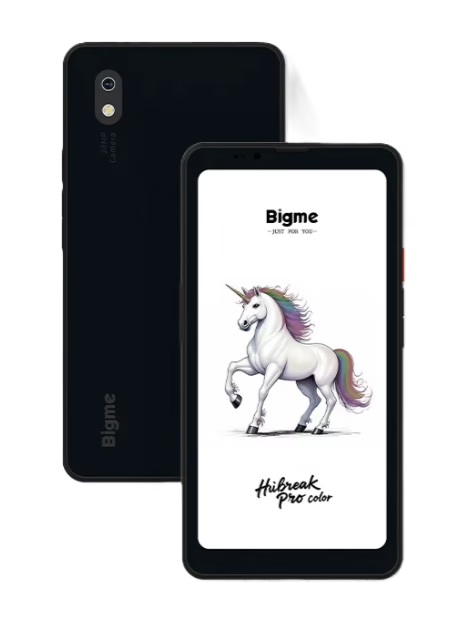The world of digital reading has changed a lot since subscription-based book services came about. They changed the way we enjoy books, giving readers the chance to dive into huge libraries for a simple monthly fee within a simple device.
Still, each service has its own unique perks and drawbacks. If you are a passionate reader eager for unlimited access to a wide range of books, it’s important to find the one that’s just right for you.
In this comparison, we’ll take a look at the three big names in the digital reading subscription space: Amazon’s Kindle Unlimited, Rakuten’s Kobo Plus, and Everand (formerly known as Scribd). We’ll explore each, so you can make a choice that fits your needs and goals perfectly.
Amazon Kindle Unlimited
As an Amazon Associate, we earn from qualifying purchases.
Amazon Kindle Unlimited stands as the titan of the digital reading subscription world, backed by the e-commerce giant’s massive infrastructure and market dominance. Launched in 2014, Kindle Unlimited has leveraged Amazon’s existing Kindle ecosystem to become the most recognizable name in unlimited reading services.
The platform operates under Amazon’s broader digital content strategy, integrating seamlessly with its Kindle devices and Fire tablets. However, you don’t need to have a Kindle device to read the books you borrow – the Kindle mobile app allows you to access your titles on any other mobile, tablet, computer, or even in other e-readers (e-ink tablets).
What does Kindle Unlimited Offer Readers?
Kindle Unlimited has by far the largest number of published e-books. It offers an extensive library of over 4 million books, audiobooks, comics, and magazines, with a preponderance of independent publishing.
Subscribers can borrow up to 20 titles simultaneously with no due dates, which provides great flexibility for voracious readers. Service prices vary from country to country; for example, they are $11.99 per month in the United States, AUD $13.99 in Australia, £9.49 in the UK, and CAD $ 11.99 in Canada, as of September 2025.
The platform excels in genre fiction, particularly romance, mystery, science fiction, and fantasy, which, not coincidentally, are also the genres that traditionally sell best. Readers can gain access to select bestsellers and popular series, but the newest releases from major publishers are typically not included in the subscription.
One of Kindle Unlimited’s features is its cross-platform synchronization. Readers can seamlessly switch between devices, with their progress, bookmarks, and notes syncing automatically across all platforms. The Whispersync feature even allows users to switch between reading and listening to audiobook versions of the same title*.
*Not all Kindle e-readers support Audible or any audiobook playback at all. Also, audiobooks available in Kindle Unlimited are only a limited selection of titles from Audible’s full catalog.
Pros and Cons
Pros:
- Largest library with over 4 million titles
- Excellent device integration and synchronization
- No due dates on borrowed titles
Cons:
- Limited selection of major publisher titles
- Higher monthly cost compared to some alternatives (if you also want audiobooks)
- Separate subscription for audiobooks (Audible)
- Users lose access if books leave the subscription catalog, even if you have downloaded them to your library
Advertisement: BigMe – The Best E-Ink Tablets For Reading And Note-Taking
Kobo Plus
With over 2 million e-books and more than 300,000 audiobooks as of 2025, Kobo Plus emerges as Amazon’s primary competitor in the subscription reading space, operated by Canadian company Rakuten Kobo.
Known for its commitment to an open reading ecosystem, Kobo has positioned itself as the alternative for readers and writers who prefer more flexibility and less corporate dominance in their reading experience. Kobo Plus offers unlimited monthly access but limits offline downloads to 15 titles. In addition, its bestseller selection is less controlled by editorial curation than Kindle Unlimited’s.
The platform distinguishes itself through its tiered subscription approach and strong international presence, particularly in markets where Amazon’s dominance is less pronounced. Kobo’s philosophy centers on providing choice and avoiding the monopolistic tendencies that some users associate with Amazon’s ecosystem.
What’s in Kobo Plus for Readers?
Kobo Plus offers a unique three-tier subscription structure that allows readers to customize their experience based on their preferences:
- The Read plan costs $7.99/month in the US, £8.99/month in the UK, AUD $13.99/month in Australia, and CAD $9.99/month in Canada, providing access to over 1.3 million e-books.
- The Listen plan, priced the same, focuses on approximately 100,000 audiobooks.
- The comprehensive Read & Listen plan costs about $9.99/month in the US, £11.99/month in the UK, AUD $16.99/month in Australia, and CAD $12.99/month in Canada, offering access to both e-books and audiobooks with a single subscription.
This tiered approach makes Kobo Plus potentially more affordable for readers who prefer only one format, offering better value than competitors for users with specific preferences.
You can read on one of the great Kobo devices or on any other mobile, tablet, computer, or e-ink tablet with the Kobo app. The Kobo app also synchronizes reading progress, notes, and bookmarks across multiple devices and platforms, for books purchased or borrowed through Kobo’s store. Sideloaded books (such as EPUBs added manually) do not sync automatically across devices through Kobo’s native system.
Despite not as extensive as Amazon’s, Kobo Plus boasts a robust international catalog, often featuring titles and authors that may not be available on other platforms. The service is particularly strong in literary fiction, international authors, and diverse voices, appealing to readers seeking content beyond mainstream bestsellers.
Pros and Cons
Pros:
- Open ecosystem approach
- Flexible tiered pricing structure
- Strong international presence
Cons:
- Less sophisticated recommendation algorithms
- Smaller overall catalog compared to Kindle Unlimited (with fewer independently published books*)
*This is because Amazon prohibits independent authors who want to be available in Kindle Unlimited from publishing elsewhere, while big publishers are exempt from this restriction.
Advertisement: The Best 6″ Colour eReader with Case

Everand (Formerly Scribd)
Everand represents a different approach to digital content subscription, originally launching as Scribd in 2007 before rebranding in 2023. Unlike its competitors, Everand positions itself as a multi-format content platform, offering not just books and audiobooks but also magazines, podcasts, sheet music, and original content.
The platform has undergone significant changes in recent years, moving away from its original unlimited model to a credit-based system that has fundamentally altered its value proposition for readers.
How does Everand Work?
Everand operates on a credit-based subscription model, with subscription pricing structure generally staying the same globally. Subscribers also receive unlimited access to magazines, podcasts, sheet music, Everand Originals, and a limited selection of e-books and audiobooks that don’t require credits.
The main tiers – Standard (around $11.99/month for 1 premium unlock) and Plus (around $16.99/month for 3 premium unlocks) – are consistent across markets, with prices shown in local currency equivalents.
This hybrid model can provide excellent value for readers who consume diverse content types, as the magazine and podcast selection is substantial and high-quality. However, for readers primarily interested in books, the credit system can feel restrictive compared to the truly unlimited models offered by competitors.
The platform’s content curation tends toward mainstream and popular titles, with a strong selection of contemporary fiction, non-fiction, and self-help books. The magazine collection includes major publications, making it attractive for readers who want access to both books and periodicals.
Everand’s mobile app experience is generally well-regarded, with good offline functionality and user interface design. However, the platform lacks the ecosystem integration that makes Kindle Unlimited and Kobo Plus so seamless across devices.
Pros and Cons
Pros:
- Multi-format content, including magazines and podcasts
- High-quality content curation
- Strong magazine and periodical selection
Cons:
- Credit-based system limits reading volume
- Higher cost for heavy readers
- Smaller pure book catalog compared to competitors
Which Book Subscription Service is Best for You?
One important thing to mention is that all three subscription services offer free trials, so you can test each one before committing your money – you can cancel anytime, anyway. After examining the platforms, the choice depends significantly on your specific needs and priorities.
Best for Budget-Conscious Readers: Kobo Plus offers the most flexible pricing with its tiered subscription options, allowing readers to pay only for the content formats they actually use.
Best for Maximum Reading Volume: Kindle Unlimited provides the largest catalog and truly unlimited reading experience, making it ideal for voracious readers who consume multiple books per month.
Best for Diverse Content Consumption: Everand excels for readers who want access to magazines, podcasts, and other content formats beyond just books, though the credit system limits pure reading volume.
For most readers, Kindle Unlimited offers the best overall value and experience, particularly for those who read frequently and across multiple genres. Budget-conscious readers or those with specific format preferences should consider Kobo Plus’s tiered approach.
The subscription reading model continues to evolve, and these platforms regularly update their offerings and policies. Readers should stay informed about changes that might affect their decision and remain flexible in their approach to maximize reading enjoyment and value for money.






